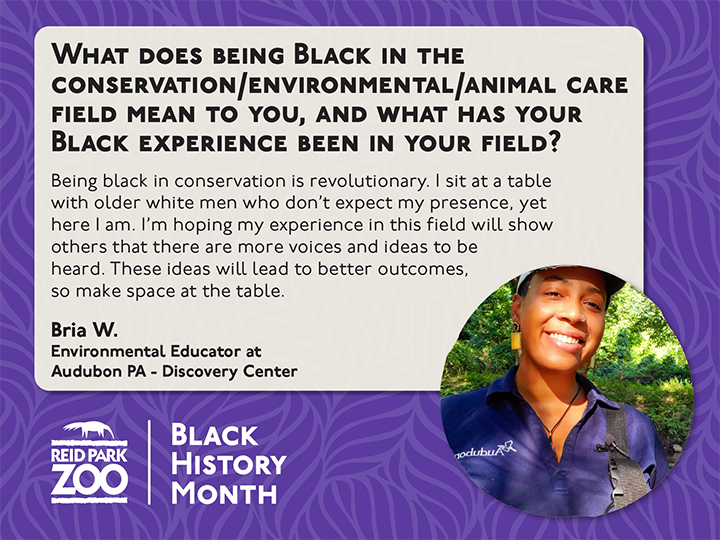Black in Nature: Featuring Bria Wimberly

This post is part of “Black in Nature: Tackling Diversity in Conservation,” a Black History Month series giving Black people who work in animal care and conservation a platform to share their experiences and spark the conversation necessary for change. Learn more here.
Bria Wimberly is an environmental educator who encourages people to engage in conservation — and feels that diversity in her role is critical. She takes pride in helping low-income communities enjoy green spaces to relax, learn, and be inspired.
“Diversity is important because our audience is diverse as well,” shares Bria. “I mainly teach in diverse communities and it’s important to know how to connect with them in order to teach; you won’t be able to find that connection with a staff that’s one-dimensional.”
Bria says that making space for diverse voices is also important for conservation work to ensure that efforts benefit all and not few. She feels that human consumption is the biggest challenge wildlife face and urges for the protection of habitats and ecosystems. “It will be harder to protect wild animals with the loss of habitat and degradation of their ecosystems due to our own powers,” adds Bria.
To help solve these issues Bria advocates for investing in black communities to create opportunities for future conservationists.
“Find programs and donors who are looking to invest in black communities,” she states. “Convince companies with money that creating opportunities in these communities will help create a more diverse (and more efficient) workforce for the future. There are already black people interested in environmental studies, but not enough resources or paid positions.”
Bria is directly part of this solution. She hopes that her role in environmental education will inspire others to listen to diverse voices.
“Being black in conservation is revolutionary,” says Bria. “I sit at a table with older white men who don’t expect my presence, yet here I am. I’m hoping my experience in this field will show others that there are more voices and ideas to be heard. These ideas will lead to better outcomes, so make space at the table.”
